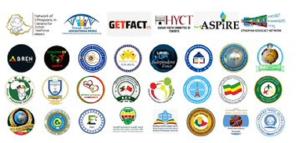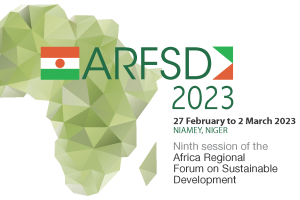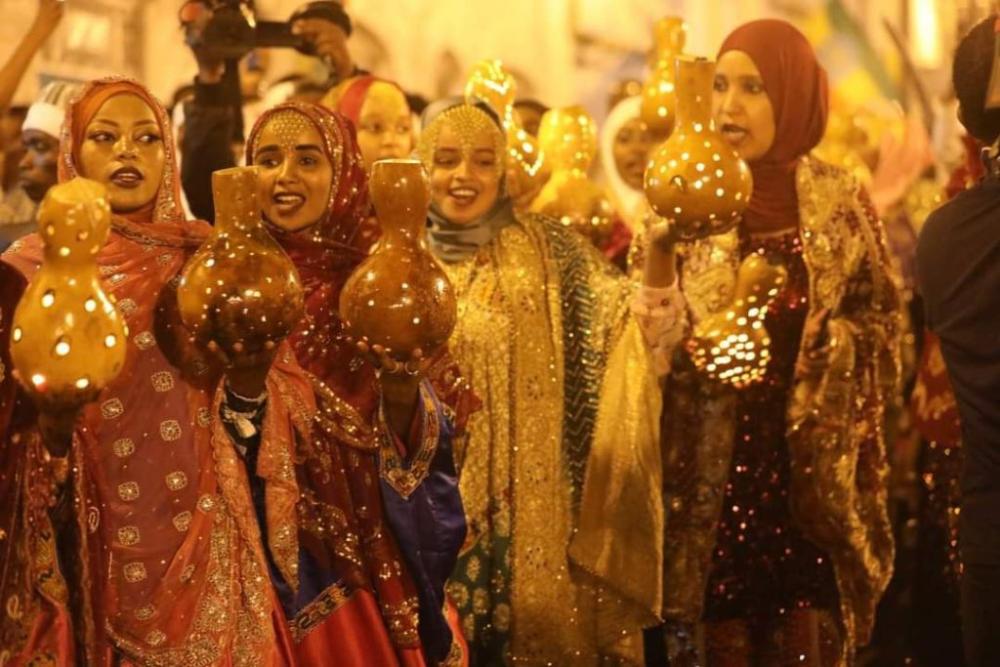ENA - ENA English
Headlines
15th Sultan of Afar Arrives in Addis Abab
Apr 23, 2024 217
Addis Ababa, April 23/2024 (ENA) The 15th Sultan of Afar, Ahmed Alimirah has arrived in Addis Ababa today. The Sultan was warmly welcomed up on arrival at the Addis Ababa Bole International Airport by high ranking government officials including Deputy Speaker of House of Federation, Zehara humed. Ahmed Alimirah is the son of renowned Sultan Alimirah, who was the spiritual leader of people of Afar. Ahmed Alimirah becomes the 15 Sultan of Afar people last year following the pass away his brother, Hanfare Alimirah. Accordingly, the Sulatan returned home today after staying abroad. The Sultans of Afar people have been hailed for their contribution in resolving social and political challenges through cultural mechanisms.
SDGs' Current Pace of Progress Insufficient to Achieve set Targets by 2030
Apr 23, 2024 216
Addis Ababa, April 23/2024 (ENA) Africa is making progress in 12 of the 17 Sustainable Development Goals (SDGs), but the current pace of progress is insufficient to achieve the goals by 2030, according to an experts report on the progress on Africa Sustainable Development. The report launched ahead of the 10th Session of the Africa Regional Forum on Sustainable Development in Addis Ababa, Ethiopia indicates that progress on the SDG agendas varies across sub-regions. The report was produced by a team of experts convened by the United Nations Economic Commission for Africa (ECA), in collaboration with African Union Commission, the United Nations Development Programme Regional Bureau for Africa (UNDP-RBA), and the African Development Bank (AfDB). On the occasion, the Deputy Executive Secretary for Programme Support at the ECA, Antonio Pedro underlined the lack of robust data as a major hurdle in tracking progress accurately. Improving data systems to effectively monitor and achieve the SDGs is essential, he stressed. “Addressing wide-ranging challenges—including social, political, environmental, and economic—is essential; specific focus areas like women's empowerment, peacebuilding, and security need targeted attention,” said Pedro, stressing the need to take advantage of technological advances, including artificial intelligence, to target interventions and achieve the SDGs with greater efficiency. He said there is need to foster domestic resource mobilization through evolving a better and innovative tax system. Countries need to improve institutional governance, strengthen data collection, analysis and reporting and devise better strategies for debt restructuring. Africa still accounts for over half (54.8 Percent) of global poverty. Particular attention therefore needs to be paid to addressing child poverty – the number of children living in extremely poor households, as about 7 out of 10 poor children live in Africa. In addition, lack of access to clean water, sanitation, energy, health, and education services coupled with inequality, infrastructure gaps, climate change, ethnic conflicts and limited employment opportunities are among the key drivers of poverty in Africa. On climate financing, the progress report shows the high climate financing gap in Africa. A large chunk of these resources emanates from public sector compared to private sector climate financing. “Issues of policies on carbon market, debt for climate swaps, and carbon tax on natural resources, as well as the establishment of national sustainable financial framework for climate change should be addressed,” says the report. The surge in debt across African countries is impeding Africa’s development, as debt servicing costs crowd out resources for social spending. There has also been limited donor support for capacity building; on average, African countries spend a trivial 0.5 percent of GDP on science, technology, and innovation. To bridge the gap and ensure that the continent achieves the SDG goals by 2030, the report recommends investing in data and capacity, integrating different data sources, developing new and alternate indicators, identifying new partners with tools and solutions such as the private sector, NGOs/CSO and academia.
FM Taye Confers with Personal Envoy of UN Secretary-General For Sudan
Apr 22, 2024 478
Addis Ababa April 22/2024 (ENA) Ethiopia’s Foreign Minister, Ambassador Taye Atske Selassie had a fruitful discussion with Ramtane Lamamra, Personal Envoy of the United nations Secretary-General Antonio Gutteres for Sudan. The two officials discussed on the importance of a coordinated and harmonized Sudanese-led and Africa-supported peace process to find solutions to the conflict in the Sudan.
Ethiopia Registers Great Strides in Climate Action: Planining & Dev't Ministry
Apr 22, 2024 447
Addis Ababa, April 22/2024 (ENA) Ministry of Planning and Development stated that Ethiopia has made significant strides in tackling climate change impacts. Africa Climate Policy Center and Addis Ababa University in collaboration with various partners hosted the Fifth Africa Climate Talks at the UNECA Headquarters in Addis Ababa today. In his opening remarks, Planning and Development State Minister Seyoum Mekonnen noted Ethiopia’s commitment to tackling climate change through effective actions. He urged all signatories of the Paris Agreement to uphold their pledges to support developing nations in mitigating climate change impacts. He underscored Ethiopia's achievements in this area, saying "My country is working on climate change. We believe Ethiopia is truly walking the talk." Ethiopia's 10-year development plan (2021-2030), a cornerstone of its Home Grown Economic Reform Agenda, prioritizes climate resilience and a green economy. According to him, this plan positions these objectives as fundamental pillars for the nation's development trajectory. The state minister elaborated on Ethiopia's long-term low emission and climate resilient strategy, which outlines a path towards achieving net-zero emissions and building a climate-resilient economy by 2050. Ethiopia also envisions the creation of nearly 6,850 green jobs annually over the next three decades, he stated. Noting that Ethiopia's allocated significant financial investment on climate change actions, Seyoum stated that a national stocktake on climate change revealed that the nation invested over 82 billion USD in climate action initiatives between 2011 and 2019. Most of the funds were mobilized from domestic investment, followed by institutional finance supporters. Based on the stocktake's recommendations, Ethiopia is now undertaking a comprehensive reform process, encompasses institutional policies, resource mobilization strategies, knowledge-sharing mechanisms, and robust stakeholder engagement and coordination. As part of its Green Legacy Initiative, the country has planted several billions of seedlings and a target is set to reach 50 billion by 2026. The country has also planned to link its Green Legacy initiative with other similar initiatives in the African continent, the state minister stated.
Cooperation Becomes Indispensable for Equitable Utilization of Nile Water Resources: NBI
Apr 22, 2024 515
Addis Ababa, April 22/2024 (ENA) Executive Director of the Nile Basin Initiative (NBI) Secretariat, Florence Grace Adongo emphasized the need for stronger cooperation among the riparian states to ensure equitable utilization and sustainable management of the Nile water resources. A national stakeholders meeting of the Nile Basin Initiative held in Addis Ababa today which aimed at raising visibility and awareness on the initiative and facilitating the tools for the implementation of its programs and projects. Addressing the meeting, the executive director recalled that the NBI covers 10 percent of the African continent and is home to almost a quarter of the continents population. The Nile Basin countries face key development challenges which are related to water security, energy security, food security and vulnerability to the environmental shocks that are rising from the negative impacts of climate change. Stressing that no county can manage these challenges unilaterally, Adongo therefore, underlined that countries across the Nile Basin should come together to find a common solution for such common problems. This move would have a paramount importance for equitable use of the Nile Basin's shared water resources, according to her. The executive director further stated that strengthening cooperation is essential to ensure equitable utilization, and sustainable management of the Nile River water resources. Over 25 years, NBI served as the platform for dialogue, a catalyst for change, fostering regional integration, enhancing competitiveness and unlocking the Nile Basin's immense potential for Africa and beyond, she pointed out. Citing that Ethiopia has been at the forefront in supporting matters of cooperation, Adongo said we look forward for more cooperation and working together. Recall Ethiopia is also one of the first countries that have endorsed the Cooperative Framework Agreement (CFA). She urged the remaining countries to ratify the agreement to transform the Nile Basin Initiative into a Nile Basin Commission. Addressing the occasion, State Minister of Water and Energy Abraha Adugna also affirmed that the NBI has made significant achievements so far despite various challenges in the region. NBI promoted basin-wide dialogue and stakeholder involvement on confidence building, providing strategic, technical and analytical framework, introducing best practice tools, and methodologies among others. The state Minister reaffirmed the solid determination of the Ethiopian government to achieve NBI's ambitions as Nile River is a transboundary water resource which crosses 11 riparian countries. Nile Basin Initiative is a regional intergovernmental partnership launched by the Nile Basin countries on 22nd February, 1999 to manage and develop the shared Nile Basin water resources in a cooperative manner, share substantial socio-economic benefits and promote regional peace and security.
Politics
15th Sultan of Afar Arrives in Addis Abab
Apr 23, 2024 217
Addis Ababa, April 23/2024 (ENA) The 15th Sultan of Afar, Ahmed Alimirah has arrived in Addis Ababa today. The Sultan was warmly welcomed up on arrival at the Addis Ababa Bole International Airport by high ranking government officials including Deputy Speaker of House of Federation, Zehara humed. Ahmed Alimirah is the son of renowned Sultan Alimirah, who was the spiritual leader of people of Afar. Ahmed Alimirah becomes the 15 Sultan of Afar people last year following the pass away his brother, Hanfare Alimirah. Accordingly, the Sulatan returned home today after staying abroad. The Sultans of Afar people have been hailed for their contribution in resolving social and political challenges through cultural mechanisms.
FM Taye Confers with Personal Envoy of UN Secretary-General For Sudan
Apr 22, 2024 478
Addis Ababa April 22/2024 (ENA) Ethiopia’s Foreign Minister, Ambassador Taye Atske Selassie had a fruitful discussion with Ramtane Lamamra, Personal Envoy of the United nations Secretary-General Antonio Gutteres for Sudan. The two officials discussed on the importance of a coordinated and harmonized Sudanese-led and Africa-supported peace process to find solutions to the conflict in the Sudan.
Understanding Ethiopia’s Legitimate Interests to Access Sea, Economic Security Imperative: Former U.S. Diplomat
Apr 20, 2024 1202
Addis Ababa, April 20/2024(ENA) It is imperative to understand Ethiopia’s legitimate interests and needs to access the sea and ensure economic security for its people, Peter Pham, a former U.S. Special Envoy for the Sahel and Great Lakes Regions of Africa, said. In an exclusive interview with ENA, the former U.S. Special Envoy said Ethiopia has played a critical role in providing peace and security throughout the region. “It has (therefore) every right to expect in return for that same goodwill and understanding for its legitimate interests and needs within terms of access to the sea and secure economic security for its people. It can't all be a one way street.” Speaking about the MoU signed between Ethiopian Prime Minister Abiy Ahmed and Somaliland President Muse Bihi Abdi, Pham stated that he has been very encouraged by the historic agreement from the very day of the announcement. “Why am I so positive? First and foremost, I believe international relations have to be based upon reality --- not fiction, not fantasy, not wishful thinking but reality. And the reality is the geopolitics and economics of this Horn of Africa region, which is so vital and changing, shifting before our eyes; and we need to adjust to these.” According to him, the second part of the reality is Ethiopia's legitimate interest in having “what I call redundant port structures.” Ethiopia is the world's most populous landlocked state with 120 million people, and to date Djibouti has been providing access for the country. But, he added that a great country with 120 million people should not rely on one outlet. The former U.S. Special Envoy further pointed out that as Ethiopia is looking for access to sea the Berbera Port makes sense economically. “DP World has already invested in there, and the United Kingdom government is investing in phase two. There's a road infrastructure, bringing up the port there.” There is an excellent runway; all sorts of things make that a compelling case, he added. Moreover, Pham elaborated that Africa as a whole and this region in particular lacks critical infrastructure. “I think the key is that Africa as a whole, but this region in lacks critical infrastructure. So I'm very much in favor of anything that contributes to whether ports, roads, energy, electricity. Anything that adds to the stock, that helps create the conditions for economic growth and prosperity shared throughout the region is a positive development.”
EMA Urges Media to Play Leading Role in Nat’l Dialogue, Transitional Justice
Apr 20, 2024 711
Addis Ababa, April 20/2024(ENA)- The Ethiopian Media Authority (EMA) has called on the media to play a critical role for the success of the historic national dialogue and transitional justice. Ethiopian Media Authority Director-General, Mohammed Idris, told ENA that the national dialogue and transitional justice have huge significance in the protection of human rights and ensuring lasting peace in the country. Realizing national dialogue and transitional justice is vital in building a strong nation, he noted, adding that the active role of all sections of the society will significantly contribute to the success of the processes. In this regard, the mass media have the responsibility of creating a clear understanding among the general public about the issues and refrain from reports that hinder the process, Mohammed underscored. The director-general said that the authority will continue to play its role in providing capacity building training for the media to enable them to cover issues and report ethically. According to him, the national dialogue and transitional justice will define the future of the country and are of great public interest. The media should therefore play their role based on such reality. For Mohammed, the media have crucial role in creating awareness about national dialogue and transitional justice among the public so that they can participate in the process with a spirit of ownership. Recall that the Government of Ethiopia recently reaffirmed its commitment to implementing transitional justice and national dialogue which are essential to ensure lasting peace. Under the leadership of Prime Minister Abiy Ahmed, the Ethiopian government has adopted a comprehensive approach to address the root causes of internal conflicts, paving the way for a more harmonious future.
PM Abiy Vows to Disentangle Ethiopia from Economic Dependence, Make Exemplary in Africa
Apr 20, 2024 942
Addis Ababa, April 20/2024(ENA)- Prime Minister Abiy Ahmed has vowed to make Ethiopia Africa's Beacon of prosperity and unity by freeing the country from economic dependence. A forum that brought together many people to support the reformist leadership of Ethiopia was held in Wolkite town, Gorage Zone of the Central Ethiopian region, in the presence of Prime Minister Abiy Ahmed. In his message on the occasion, the premier lauded the people of Gurage zone who promote unity and solidarity. He emphasized that this is a practical testament which the rest of Ethiopian people should take as a lesson to live harmoniously. Stressing the need for realizing development and prosperity in Ethiopia, Abiy called on the people of the country to seek peace and harmony in order to see a prosperous and convenient Ethiopia. The prime minister also noted to accommodate Ethiopia’s diverse ethnic identities, cultures, languages, and topography, adding that these could not be a source of difference to build a strong nation-state. Abiy further highlighted that Ethiopia has repeatedly fought for its independence and it is a country that has thwarted all attempts of external aggressions. However, the country has not realized economic development and freed from dependence in this regard. Thus, the East African nation should strive to extricate itself from economic dependence, he said. In this case, Prime Minister Abiy mentioned the success of Gurage people as an example for business and trade activities in Ethiopia. According to him, the people of Gurage’s active engagement in the business sphere, remains a model and would help the endeavors of the nation to free Ethiopia from economic dependence. He also urged all Ethiopians to stand for development and prosperity. The prime minister underscored that the nation has embarked on a massive economic development trajectory to make Ethiopia a beacon of Africa's prosperity. And he called on all Ethiopians to stand together and discharge their national responsibility. Finally, the premier noted that to realize prosperous Ethiopia through strong efforts, it is crucial to consolidate national unity and defeat the illusionist forces, attempting to divide the public and fuel conflict in the country.
Public Rally Held in Wolkite Town in Support of Ongoing Reform
Apr 20, 2024 800
Addis Ababa, April 20/2024(ENA)- A public rally was held in support of the ongoing multifaceted national reforms in Wolkite town, Central Ethiopia Regional state, in the presence of Prime Minister Abiy Ahmed. High level federal and regional government officials as well as zonal leaders and residents of Wolkite Town, the capital of the Gurage zone, attended the public rally where various messages were conveyed, it was indicated. Similar rallies were held in various regions of Ethiopia during the past few weeks in support of the ongoing reforms. Recall that the Government Communication Service of Ethiopia recently affirmed that vivid results were registered in various spheres over the last six years under the leadership of Prime Minister Abiy Ahmed.
Ambassador Says Armenia Keen to Bolster Relations with Ethiopia
Apr 20, 2024 938
Addis Ababa, April 20/2024(ENA)- Armenia wants to strengthen bilateral and multilateral relations with Ethiopia, Ambassador Sahak Sargsyan told ENA. The longstanding religious, historical and cultural ties between the two countries are foundations that can help as springboard to catalyze the path to expand bilateral and multilateral relations, the Armenian ambassador to Ethiopia added. The ambassador recalled that Kevork Nalbandian, the musician of Armenian descent, for instance composed Ethiopia’s national anthem, which was in use until 1974. His nephew is also considered a founder of the modern Ethiopian music, particularly jazz and pop, Ambassador Sargsyan revealed. According to him, the countries have already been collaborating in culture, education, and some other fields as well as the IT sector. “But, of course, we look forward to expand this collaboration and partnership with our friends and partners in other areas. That can be tourism, agriculture, and energy.” Moreover, he stated that Armenia likes to strengthen multilateral relations beyond bilateral cooperation. “My objective as an ambassador here is to unlock the potential for collaboration, not only bilaterally but also multilaterally.” Although the historical and strong relationship of the two countries goes back to many centuries, the Armenian Embassy in Ethiopia was opened only four years ago. Yet, it is actively fostering the age-old relationship, he added. Ambassador Sargsyan revealed plans for a documentary film and concert arrangements aimed at solidifying the cultural and artistic ties between the countries. Finally, he pointed out that there were also Armenians who helped Ethiopian fighters acquire modern weaponry during the historical Battle of Adwa.
Horn of Africa Deserves, Can Bring Sustainable Peace, Prosperity: Foreign Affairs State Minister
Apr 19, 2024 1203
Addis Ababa, April 19/2024(ENA)-The Horn of Africa deserves and can bring sustainable peace, prosperity and security to the region, Foreign Affairs State Minister Mesganu Arga said. Opening the Second Horn Dialogue Series today, the state minister said the dialogue series is an important platform to enhance cooperation and collaboration among stakeholders as the Horn of Africa stands at a critical juncture. “Here we have the opportunity to engage in open and intellectual discussions, dissect the regional security landscape and propose concrete strategies for collaboration,” he added. Mesganu stressed that the Horn of Africa deserves sustainable peace, prosperity and security, adding that the dialogue is a crucial step towards achieving that vision. He believes that nations can address the root cause of conflict and foster sustainable peace by fostering greater collaboration between themselves. “We can strengthen our collective effort to counter terrorism, piracy and illicit arms threat by implementing effective border management, and maritime security protocols. We can also create a safer and more stable environment for all.” This region, which is a strategic gateway to Africa, the Middle East, and Asia, holds immense significance for peace, stability, and prosperity. However, “we cannot ignore the harsh reality of the Horn region burdened by complex security challenges, armed conflict, political instability, recurrent drought induced by climate change, piracy and proliferation of smaller arms and traffic,” he stressed. The governments should, therefore, work together with unwavering commitment and a shared sense of purpose to build a brighter future for the Horn of Africa and in turn for the entire international community. And this dialogue is a crucial step towards achieving that vision, the state minister noted. Institute of Foreign Affairs Executive Director, Jafar Bedru, said on his part that the Horn of Africa has recently become a critical region due to a convergence of events and circumstances. Thus, this round of dialogue series seeks to raise awareness and influence policy directions for navigating the region's complexities, he said, adding that open regional dialogues is very crucial for addressing current challenges and envisioning a shared future for the Horn of Africa. “By leveraging the collective strengths, resources and aspirations of its member countries, the region can achieve security, economic prosperity and social development. This requires fostering greater cooperation, collaboration and dialogue.” The executive director underlined that this requires fostering greater cooperation, collaboration and dialogue. According to him, the Horn Africa holds immense potential for regional integrity, integration and prosperity despite the challenges. Panelists and participants discussed thematic issues, including changes and continuities in the regional security landscape, the role of external actors in regional security, building a stronger, integrated region for sustainable peace and opportunity. The aim of the Second Horn Dialogue Series held today in Addis Ababa is to foster knowledge sharing, idea exchange and exploration of innovative solutions for the region's pressing security and political challenges.
Politics
15th Sultan of Afar Arrives in Addis Abab
Apr 23, 2024 217
Addis Ababa, April 23/2024 (ENA) The 15th Sultan of Afar, Ahmed Alimirah has arrived in Addis Ababa today. The Sultan was warmly welcomed up on arrival at the Addis Ababa Bole International Airport by high ranking government officials including Deputy Speaker of House of Federation, Zehara humed. Ahmed Alimirah is the son of renowned Sultan Alimirah, who was the spiritual leader of people of Afar. Ahmed Alimirah becomes the 15 Sultan of Afar people last year following the pass away his brother, Hanfare Alimirah. Accordingly, the Sulatan returned home today after staying abroad. The Sultans of Afar people have been hailed for their contribution in resolving social and political challenges through cultural mechanisms.
FM Taye Confers with Personal Envoy of UN Secretary-General For Sudan
Apr 22, 2024 478
Addis Ababa April 22/2024 (ENA) Ethiopia’s Foreign Minister, Ambassador Taye Atske Selassie had a fruitful discussion with Ramtane Lamamra, Personal Envoy of the United nations Secretary-General Antonio Gutteres for Sudan. The two officials discussed on the importance of a coordinated and harmonized Sudanese-led and Africa-supported peace process to find solutions to the conflict in the Sudan.
Understanding Ethiopia’s Legitimate Interests to Access Sea, Economic Security Imperative: Former U.S. Diplomat
Apr 20, 2024 1202
Addis Ababa, April 20/2024(ENA) It is imperative to understand Ethiopia’s legitimate interests and needs to access the sea and ensure economic security for its people, Peter Pham, a former U.S. Special Envoy for the Sahel and Great Lakes Regions of Africa, said. In an exclusive interview with ENA, the former U.S. Special Envoy said Ethiopia has played a critical role in providing peace and security throughout the region. “It has (therefore) every right to expect in return for that same goodwill and understanding for its legitimate interests and needs within terms of access to the sea and secure economic security for its people. It can't all be a one way street.” Speaking about the MoU signed between Ethiopian Prime Minister Abiy Ahmed and Somaliland President Muse Bihi Abdi, Pham stated that he has been very encouraged by the historic agreement from the very day of the announcement. “Why am I so positive? First and foremost, I believe international relations have to be based upon reality --- not fiction, not fantasy, not wishful thinking but reality. And the reality is the geopolitics and economics of this Horn of Africa region, which is so vital and changing, shifting before our eyes; and we need to adjust to these.” According to him, the second part of the reality is Ethiopia's legitimate interest in having “what I call redundant port structures.” Ethiopia is the world's most populous landlocked state with 120 million people, and to date Djibouti has been providing access for the country. But, he added that a great country with 120 million people should not rely on one outlet. The former U.S. Special Envoy further pointed out that as Ethiopia is looking for access to sea the Berbera Port makes sense economically. “DP World has already invested in there, and the United Kingdom government is investing in phase two. There's a road infrastructure, bringing up the port there.” There is an excellent runway; all sorts of things make that a compelling case, he added. Moreover, Pham elaborated that Africa as a whole and this region in particular lacks critical infrastructure. “I think the key is that Africa as a whole, but this region in lacks critical infrastructure. So I'm very much in favor of anything that contributes to whether ports, roads, energy, electricity. Anything that adds to the stock, that helps create the conditions for economic growth and prosperity shared throughout the region is a positive development.”
EMA Urges Media to Play Leading Role in Nat’l Dialogue, Transitional Justice
Apr 20, 2024 711
Addis Ababa, April 20/2024(ENA)- The Ethiopian Media Authority (EMA) has called on the media to play a critical role for the success of the historic national dialogue and transitional justice. Ethiopian Media Authority Director-General, Mohammed Idris, told ENA that the national dialogue and transitional justice have huge significance in the protection of human rights and ensuring lasting peace in the country. Realizing national dialogue and transitional justice is vital in building a strong nation, he noted, adding that the active role of all sections of the society will significantly contribute to the success of the processes. In this regard, the mass media have the responsibility of creating a clear understanding among the general public about the issues and refrain from reports that hinder the process, Mohammed underscored. The director-general said that the authority will continue to play its role in providing capacity building training for the media to enable them to cover issues and report ethically. According to him, the national dialogue and transitional justice will define the future of the country and are of great public interest. The media should therefore play their role based on such reality. For Mohammed, the media have crucial role in creating awareness about national dialogue and transitional justice among the public so that they can participate in the process with a spirit of ownership. Recall that the Government of Ethiopia recently reaffirmed its commitment to implementing transitional justice and national dialogue which are essential to ensure lasting peace. Under the leadership of Prime Minister Abiy Ahmed, the Ethiopian government has adopted a comprehensive approach to address the root causes of internal conflicts, paving the way for a more harmonious future.
PM Abiy Vows to Disentangle Ethiopia from Economic Dependence, Make Exemplary in Africa
Apr 20, 2024 942
Addis Ababa, April 20/2024(ENA)- Prime Minister Abiy Ahmed has vowed to make Ethiopia Africa's Beacon of prosperity and unity by freeing the country from economic dependence. A forum that brought together many people to support the reformist leadership of Ethiopia was held in Wolkite town, Gorage Zone of the Central Ethiopian region, in the presence of Prime Minister Abiy Ahmed. In his message on the occasion, the premier lauded the people of Gurage zone who promote unity and solidarity. He emphasized that this is a practical testament which the rest of Ethiopian people should take as a lesson to live harmoniously. Stressing the need for realizing development and prosperity in Ethiopia, Abiy called on the people of the country to seek peace and harmony in order to see a prosperous and convenient Ethiopia. The prime minister also noted to accommodate Ethiopia’s diverse ethnic identities, cultures, languages, and topography, adding that these could not be a source of difference to build a strong nation-state. Abiy further highlighted that Ethiopia has repeatedly fought for its independence and it is a country that has thwarted all attempts of external aggressions. However, the country has not realized economic development and freed from dependence in this regard. Thus, the East African nation should strive to extricate itself from economic dependence, he said. In this case, Prime Minister Abiy mentioned the success of Gurage people as an example for business and trade activities in Ethiopia. According to him, the people of Gurage’s active engagement in the business sphere, remains a model and would help the endeavors of the nation to free Ethiopia from economic dependence. He also urged all Ethiopians to stand for development and prosperity. The prime minister underscored that the nation has embarked on a massive economic development trajectory to make Ethiopia a beacon of Africa's prosperity. And he called on all Ethiopians to stand together and discharge their national responsibility. Finally, the premier noted that to realize prosperous Ethiopia through strong efforts, it is crucial to consolidate national unity and defeat the illusionist forces, attempting to divide the public and fuel conflict in the country.
Public Rally Held in Wolkite Town in Support of Ongoing Reform
Apr 20, 2024 800
Addis Ababa, April 20/2024(ENA)- A public rally was held in support of the ongoing multifaceted national reforms in Wolkite town, Central Ethiopia Regional state, in the presence of Prime Minister Abiy Ahmed. High level federal and regional government officials as well as zonal leaders and residents of Wolkite Town, the capital of the Gurage zone, attended the public rally where various messages were conveyed, it was indicated. Similar rallies were held in various regions of Ethiopia during the past few weeks in support of the ongoing reforms. Recall that the Government Communication Service of Ethiopia recently affirmed that vivid results were registered in various spheres over the last six years under the leadership of Prime Minister Abiy Ahmed.
Ambassador Says Armenia Keen to Bolster Relations with Ethiopia
Apr 20, 2024 938
Addis Ababa, April 20/2024(ENA)- Armenia wants to strengthen bilateral and multilateral relations with Ethiopia, Ambassador Sahak Sargsyan told ENA. The longstanding religious, historical and cultural ties between the two countries are foundations that can help as springboard to catalyze the path to expand bilateral and multilateral relations, the Armenian ambassador to Ethiopia added. The ambassador recalled that Kevork Nalbandian, the musician of Armenian descent, for instance composed Ethiopia’s national anthem, which was in use until 1974. His nephew is also considered a founder of the modern Ethiopian music, particularly jazz and pop, Ambassador Sargsyan revealed. According to him, the countries have already been collaborating in culture, education, and some other fields as well as the IT sector. “But, of course, we look forward to expand this collaboration and partnership with our friends and partners in other areas. That can be tourism, agriculture, and energy.” Moreover, he stated that Armenia likes to strengthen multilateral relations beyond bilateral cooperation. “My objective as an ambassador here is to unlock the potential for collaboration, not only bilaterally but also multilaterally.” Although the historical and strong relationship of the two countries goes back to many centuries, the Armenian Embassy in Ethiopia was opened only four years ago. Yet, it is actively fostering the age-old relationship, he added. Ambassador Sargsyan revealed plans for a documentary film and concert arrangements aimed at solidifying the cultural and artistic ties between the countries. Finally, he pointed out that there were also Armenians who helped Ethiopian fighters acquire modern weaponry during the historical Battle of Adwa.
Horn of Africa Deserves, Can Bring Sustainable Peace, Prosperity: Foreign Affairs State Minister
Apr 19, 2024 1203
Addis Ababa, April 19/2024(ENA)-The Horn of Africa deserves and can bring sustainable peace, prosperity and security to the region, Foreign Affairs State Minister Mesganu Arga said. Opening the Second Horn Dialogue Series today, the state minister said the dialogue series is an important platform to enhance cooperation and collaboration among stakeholders as the Horn of Africa stands at a critical juncture. “Here we have the opportunity to engage in open and intellectual discussions, dissect the regional security landscape and propose concrete strategies for collaboration,” he added. Mesganu stressed that the Horn of Africa deserves sustainable peace, prosperity and security, adding that the dialogue is a crucial step towards achieving that vision. He believes that nations can address the root cause of conflict and foster sustainable peace by fostering greater collaboration between themselves. “We can strengthen our collective effort to counter terrorism, piracy and illicit arms threat by implementing effective border management, and maritime security protocols. We can also create a safer and more stable environment for all.” This region, which is a strategic gateway to Africa, the Middle East, and Asia, holds immense significance for peace, stability, and prosperity. However, “we cannot ignore the harsh reality of the Horn region burdened by complex security challenges, armed conflict, political instability, recurrent drought induced by climate change, piracy and proliferation of smaller arms and traffic,” he stressed. The governments should, therefore, work together with unwavering commitment and a shared sense of purpose to build a brighter future for the Horn of Africa and in turn for the entire international community. And this dialogue is a crucial step towards achieving that vision, the state minister noted. Institute of Foreign Affairs Executive Director, Jafar Bedru, said on his part that the Horn of Africa has recently become a critical region due to a convergence of events and circumstances. Thus, this round of dialogue series seeks to raise awareness and influence policy directions for navigating the region's complexities, he said, adding that open regional dialogues is very crucial for addressing current challenges and envisioning a shared future for the Horn of Africa. “By leveraging the collective strengths, resources and aspirations of its member countries, the region can achieve security, economic prosperity and social development. This requires fostering greater cooperation, collaboration and dialogue.” The executive director underlined that this requires fostering greater cooperation, collaboration and dialogue. According to him, the Horn Africa holds immense potential for regional integrity, integration and prosperity despite the challenges. Panelists and participants discussed thematic issues, including changes and continuities in the regional security landscape, the role of external actors in regional security, building a stronger, integrated region for sustainable peace and opportunity. The aim of the Second Horn Dialogue Series held today in Addis Ababa is to foster knowledge sharing, idea exchange and exploration of innovative solutions for the region's pressing security and political challenges.
Social
Gov’t Reaffirms Commitment to Implementing Transitional Justice Policy
Apr 19, 2024 815
Addis Ababa, April 19/2024(ENA) The Government of Ethiopia is committed to implementing the Transitional Justice Policy which is essential to ensure lasting peace in the country, House of People's Representatives (HPR) Chief Government Whip Tesfaye Beljige said. The chief government whip gave the assurance at a consultative meeting held for parliamentarians and high government officials to discuss the Transitional Justice Policy approved this week by the Council of Ministers. Addressing the meeting, Tesfaye Beljige said the experience of various countries show that appropriately implementing transitional justice is crucial to sustainable resolution of complex crises. The government has, therefore, shown unwavering commitment for the realization of transitional justice starting from taking the initiative in preparing the document, he added. Tesfaye elaborated that transitional justice is an important tool to solve deep rooted problems and the government has a clear position to bring lasting peace and stability in Ethiopia by resolving disputes arising from the past through forgiveness. For him, the role of all stakeholders is essential to realize the historic national dialogue and the Transitional Justice Policy. House of People's Representatives Speaker, Tagesse Chaffo said on the occasion that implementing the policy is essential for a better Ethiopia. Designing and implementing a participatory transitional justice based on the nation's political and social circumstances with a clear policy framework is vital, he underscored. The speaker, who noted that the Ministry of Justice has a huge role for monitoring and coordinating the implementation of the policy and law documents, affirmed that the HPR will continue its unwavering support to the implementation of transitional justice. Recall that Ethiopia has been making various attempts to resolve human rights violations, civil conflicts, unwarranted narratives and abuses that had occurred and continue in different eras with a wide range of victims and perpetrators.
Field Marshal Birhanu Extends Condolences over Death of Kenya's Defense Chief
Apr 19, 2024 828
Addis Ababa, April 19/2024(ENA)-Chief of General Staff of the Ethiopian National Defense Force (ENDF), Field Marshal Birhanu Jula, has expressed his condolences over the death of General Francis Omondi Ogolla, Kenya's Chief of Defense Force. In his message of condolences on behalf of the ENDF and himself, Field Marshal Birhanu expressed his compassion to the bereaved families and friends of the top military officers who lost their lives in a helicopter crash. He stated that General Ogolla has hugely contributed to peace and security of his country as well as the region. Field Marshal Birhanu affirmed that the ENDF will stand by Kenyans at this difficult time. Kenya began today a three-day mourning after its defense chief and nine other senior military officers were killed in a helicopter crash. The helicopter was carrying 11 people, including the Kenyan Chief of Defense Force Gen. Ogolla, when it crashed on Thursday and caught fire in a remote area near the border with Uganda, killing nine people on board.
Chinese Language Learning Gaining Momentum in Africa, Says UNECA Director
Apr 18, 2024 1074
Addis Ababa April 18/2024 (ENA) There is a growing interest and promising future for learning the Chinese language in Africa, according to UNECA Africa Center for Statistics Director Oliver Chinganya. Addressing the celebration of the Chinese Language Day at the UNECA (United Nations Economic for Africa) in Addis Ababa today, the director noted that among the numerous reasons why people are increasingly interested in learning Chinese is its being one of the six official working languages of the United Nations. The growing ease of travel to China, expansion of Confucius Institutes in the continent, and the vast economic opportunities that come with Chinese language proficiency are the other reasons, Chinganya added. According to him, there were 62 Confucius institutes in 45 African countries in 2021. The number of students enrolled in the Chinese language programs also surpassed the number of students in many European countries. The director claimed that the number of people learning Chinese worldwide is nearing 40 million, and is projected to reach 100 million by 2026. Chinganya finally called for a stronger partnership between UNECA and China's Mission to the African Union, along with other multilateral partners. Head of China's Mission to the African Union, Hu Changchun, echoed the importance of learning Chinese to understand China. Emphasizing the worldwide surge in demand for Chinese language proficiency, he reaffirmed his government's commitment to addressing global needs such as peace, development, and cooperation.
Dev’t Partners Pledge 630 mln USD to Ethiopia’s Climate Induced Humanitarian Assistance
Apr 18, 2024 1126
Addis Ababa, April 18/2024 (ENA)Global development partners pledged 630 million USD to support the humanitarian assistance induced by climate change in Ethiopia, Foreign Affairs Spokesperson Nebiyu Tedla said. In his biweekly briefing today, Spokesperson Nebiyu said that Ethiopia has achieved numerous diplomatic gains in the last 6 years of reform. The high-level pledging conference in Geneva co-sponsored by Ethiopia, Britain and the United Nations received nearly about 630 million USD in pledges to provide humanitarian assistance for Ethiopians suffering from the ill effects of climate change, it was indicated. Ethiopia is gaining encouraging results towards food security; particularly with the dry season wheat, he stated, and added that it is journey to ensure self-reliance. In addition to that, Ethiopia made efforts to engage the diaspora in every national developmental agenda, Nebiyu said, and emphasized that Ethiopia has gained 20 billion USD through remittance over the last 5 years. Moreover, the diaspora has contributed about 55 million USD to accelerate the completion of the national flagship project Grand Ethiopian Renaissance Dam (GERD), the Spokesperson elaborated.
Economy
SDGs' Current Pace of Progress Insufficient to Achieve set Targets by 2030
Apr 23, 2024 216
Addis Ababa, April 23/2024 (ENA) Africa is making progress in 12 of the 17 Sustainable Development Goals (SDGs), but the current pace of progress is insufficient to achieve the goals by 2030, according to an experts report on the progress on Africa Sustainable Development. The report launched ahead of the 10th Session of the Africa Regional Forum on Sustainable Development in Addis Ababa, Ethiopia indicates that progress on the SDG agendas varies across sub-regions. The report was produced by a team of experts convened by the United Nations Economic Commission for Africa (ECA), in collaboration with African Union Commission, the United Nations Development Programme Regional Bureau for Africa (UNDP-RBA), and the African Development Bank (AfDB). On the occasion, the Deputy Executive Secretary for Programme Support at the ECA, Antonio Pedro underlined the lack of robust data as a major hurdle in tracking progress accurately. Improving data systems to effectively monitor and achieve the SDGs is essential, he stressed. “Addressing wide-ranging challenges—including social, political, environmental, and economic—is essential; specific focus areas like women's empowerment, peacebuilding, and security need targeted attention,” said Pedro, stressing the need to take advantage of technological advances, including artificial intelligence, to target interventions and achieve the SDGs with greater efficiency. He said there is need to foster domestic resource mobilization through evolving a better and innovative tax system. Countries need to improve institutional governance, strengthen data collection, analysis and reporting and devise better strategies for debt restructuring. Africa still accounts for over half (54.8 Percent) of global poverty. Particular attention therefore needs to be paid to addressing child poverty – the number of children living in extremely poor households, as about 7 out of 10 poor children live in Africa. In addition, lack of access to clean water, sanitation, energy, health, and education services coupled with inequality, infrastructure gaps, climate change, ethnic conflicts and limited employment opportunities are among the key drivers of poverty in Africa. On climate financing, the progress report shows the high climate financing gap in Africa. A large chunk of these resources emanates from public sector compared to private sector climate financing. “Issues of policies on carbon market, debt for climate swaps, and carbon tax on natural resources, as well as the establishment of national sustainable financial framework for climate change should be addressed,” says the report. The surge in debt across African countries is impeding Africa’s development, as debt servicing costs crowd out resources for social spending. There has also been limited donor support for capacity building; on average, African countries spend a trivial 0.5 percent of GDP on science, technology, and innovation. To bridge the gap and ensure that the continent achieves the SDG goals by 2030, the report recommends investing in data and capacity, integrating different data sources, developing new and alternate indicators, identifying new partners with tools and solutions such as the private sector, NGOs/CSO and academia.
Cooperation Becomes Indispensable for Equitable Utilization of Nile Water Resources: NBI
Apr 22, 2024 515
Addis Ababa, April 22/2024 (ENA) Executive Director of the Nile Basin Initiative (NBI) Secretariat, Florence Grace Adongo emphasized the need for stronger cooperation among the riparian states to ensure equitable utilization and sustainable management of the Nile water resources. A national stakeholders meeting of the Nile Basin Initiative held in Addis Ababa today which aimed at raising visibility and awareness on the initiative and facilitating the tools for the implementation of its programs and projects. Addressing the meeting, the executive director recalled that the NBI covers 10 percent of the African continent and is home to almost a quarter of the continents population. The Nile Basin countries face key development challenges which are related to water security, energy security, food security and vulnerability to the environmental shocks that are rising from the negative impacts of climate change. Stressing that no county can manage these challenges unilaterally, Adongo therefore, underlined that countries across the Nile Basin should come together to find a common solution for such common problems. This move would have a paramount importance for equitable use of the Nile Basin's shared water resources, according to her. The executive director further stated that strengthening cooperation is essential to ensure equitable utilization, and sustainable management of the Nile River water resources. Over 25 years, NBI served as the platform for dialogue, a catalyst for change, fostering regional integration, enhancing competitiveness and unlocking the Nile Basin's immense potential for Africa and beyond, she pointed out. Citing that Ethiopia has been at the forefront in supporting matters of cooperation, Adongo said we look forward for more cooperation and working together. Recall Ethiopia is also one of the first countries that have endorsed the Cooperative Framework Agreement (CFA). She urged the remaining countries to ratify the agreement to transform the Nile Basin Initiative into a Nile Basin Commission. Addressing the occasion, State Minister of Water and Energy Abraha Adugna also affirmed that the NBI has made significant achievements so far despite various challenges in the region. NBI promoted basin-wide dialogue and stakeholder involvement on confidence building, providing strategic, technical and analytical framework, introducing best practice tools, and methodologies among others. The state Minister reaffirmed the solid determination of the Ethiopian government to achieve NBI's ambitions as Nile River is a transboundary water resource which crosses 11 riparian countries. Nile Basin Initiative is a regional intergovernmental partnership launched by the Nile Basin countries on 22nd February, 1999 to manage and develop the shared Nile Basin water resources in a cooperative manner, share substantial socio-economic benefits and promote regional peace and security.
Ethiopia Reiterates Its Commitment to BRICS Vision
Apr 22, 2024 519
Addis Ababa April 22/2024 (ENA) Ethiopia has reiterated commitment to BRICS vision and to discharge its responsibilities for promoting meaningful and productive partnership for inclusive and sustainable development. State Minister of Foreign Affairs, Mesganu Arga is participating in the 2nd BRICS Sherpas/ Sous -Sherpas meeting on partner country model in Moscow. Mesganu posted on X: “I reiterated Ethiopia’s commitment to BRICS vision and discharge our responsibilities to promote meaningful and productive partnership for inclusive and sustainable development.”
Ministry Stresses Need for Strengthening Collaboration on Water, Energy Accessibility
Apr 22, 2024 433
Addis Ababa, April 22/2024 (ENA) Bolstering collaboration among development partners and NGOs on water and energy accessibility is significant to prevent duplication of efforts in the sector, Minister of Water and Energy, Engineer Habtamu Itefa said. A joint working group secretariat for the water and energy sector convened discussion today to assess the progress made and explore avenues for future cooperation. Speaking at the occasion, Engineer Habtamu stated that we are here to share our experiences and discuss on how to enhance future actions strategically. Over the past three years, we have achieved significant milestones in water supply, water resource management, and energy accessibility, he noted. For this, the minister expressed gratitude to development partners for their support in this regard, acknowledging the efforts made towards modernization, ensuring water sustainability, and automation for effective planning. According to him, the government is committed to further enhancing its collaboration with development partners and NGOs to ensure drinking water and energy needs of the citizens. "I believe it's time for strategic collaboration to prevent resource duplication and streamline activities. Today, our focus is to reflect on our collective experiences, assess progress, and chart a path forward," he stated. Achieving such goals requires a strategic approach and collaborative planning, he said, adding that ideally, regular evaluations on a quarterly or even more frequent basis, will allow us to identify both our shortcomings and our areas of efficiency. Unless we strive to optimize our resources for specific purposes that address our needs, our efforts may yield minimal results or fail to meet our demands entirely, he said. Water Aid Country Director, Yaekob Metena, emphasized the necessity of collaborative efforts between the government and development partners to improve Ethiopia's utilization of resources in the water and energy sector. He highlighted the importance of ongoing consultations among development partners engaged in the sector, enabling institutions to share experiences and foster a culture of information exchange. Additionally, he noted that partner organizations will collaborate closely with the ministry to achieve the sector's development objectives. Country Director for IRC WASH, Lemessa Mekonta on his part stressed the importance of ensuring accessibility of clean water and energy to citizens through fostering collaboration among partner organizations. Substantial resources are needed to translate efforts in the water and energy sector into tangible outcomes, he said, adding, to this effect, concerted efforts from the government or development partners are also sought.
Technology
IRENA Hails Ethiopia's Regional Renewable Energy Integration
Apr 21, 2024 541
Addis Ababa, April 21/2024(ENA)-The International Renewable Energy Agency (IRENA) Director General appreciated Ethiopia's Regional Renewable Energy Integration. The fourteenth session of the Assembly of the International Renewable Energy Agency (IRENA) held in Abu Dhabi, United Arab Emirates. The Ethiopian delegation, led by Minister of Water and Energy Habtamu Etefa and Ethiopian Ambassador to the United Arab Emirates Omar Hussien, participated at the assembly. The final day of the Assembly focused on the topics of bankable renewable energy projects, Africa's energy transition, the important roles of geothermal energy and green hydrogen, as well as the policy and skills needed to accelerate the energy transition. Members also continued to convene to push collaboration and cooperation forward towards the tripled renewables target by 2030. During the closing session of IRENA, Minister of Water and Energy Habtamu said, "We have also now prepared private-public partnership models that will increase the confidence of the private sector on actions taken by Ethiopia to increase private sector investment to foster bankability to expand solar, wind, and geothermal projects." He highlighted Ethiopia's energy strategy, which exemplifies the commitment of Ethiopian Prime Minister Abiy Ahmed to harnessing renewable energy sources. "We are close to achieving our target of 100 percent renewable energy by 2030 to propel our economy forward and achieve energy independence." The Ethiopian government is committed to regional integration by sharing its energy with neighboring countries like Kenya, Djibouti, and others. This strategy is not only used to ensure our economy but also to secure regional peace and security, he concluded. IRENA director general Raul Alfaro Pelico, Director of Knowledge, Policy, and Finance Center (KPFC) at IRENA, closed the plenary session, reflecting on the need for a new paradigm on bankability and project impact to de-risk investment, increase public-private partnerships, and accelerate collaborative efforts to catalyze a global shift like what the Ethiopian government does. Raul noted that the energy transition is also expected to increase energy sector employment, with renewable energy jobs potentially tripling from the current 13.7 million to 40 million by 2050. Investments in other energy transition-related technologies could result in a substantial increase in job opportunities. Raul also made note of the possible misalignment of future job opportunities owing to developmental and geographical disparities. He called for just transition policies like tax credits, subsidies, grants, and public research and development to ensure that the misalignments do not become barriers to the renewable energy transition. In the session, the participants explore the African Renewable Power Alliance (APRA) and its strategy for boosting renewable energy in Africa through international collaboration.
Space Science and Geospatial Institute to Share High-Resolution Satellite Data Freely
Apr 17, 2024 1433
Addis Ababa, April 17/2024 (ENA) The Ethiopian Space Science and Geospatial Institute (SSGI) announced that it has made high-resolution satellite data freely available to stakeholders in the country. The data was collected through a collaborative project signed with China's Ministry of Natural Resources in April, 2023. The institute held a national workshop to popularize high-resolution data collected from the Chinese Land Satellite Remote Sensing Application Centre (LASAC) and the National Spatial Data Infrastructure (NSDI) today. Space Science and Geospatial Institute Deputy Director-General Bethelhem Nigussie said on the occasion that the 5-year LASAC project has resulted in a detailed satellite imagery covering the entire country. According to her, the institute is now ready to exchange the data with stakeholders for free based on provisional agreements to be reached soon. The data can be used for various purposes, including natural resources, agriculture and livestock, it was learned. In particular, the data will be helpful in managing natural disasters like floods and droughts, which are common in Ethiopia. Challenges such as data accessibility, lack of skilled personnel, and infrastructure limitations were identified during a workshop held by SSGI to discuss using the data. Meanwhile, SSGI has signed a Memorandum of Understanding with the Ethiopian Statistical Service to facilitate data and information sharing. Space Science and Geospatial Institute Director-General Abdisa Yilma and Ethiopian Statistical Service Director-General Beker Shale signed the agreement.
Wingu Africa Achieves Tier III Certification for Data Center
Apr 16, 2024 1848
Addis Ababa, April 16/2024 (ENA) -Wingu Africa Group Limited, a leading data center provider in Ethiopia, has achieved Tier III certification from the Uptime Institute for its facility in the ICT Park, Addis Ababa. Wingu Africa has successfully met the stringent requirements, ensuring the facility's ability to withstand maintenance activities and unexpected failures without impacting critical IT functions, it was learned. Uptime Institute is a Global Digital Infrastructure Authority, headquartered in New York, NY, with main offices in London, São Paulo, Dubai, Riyadh, Singapore, and Taipei. This prestigious certification, awarded by the institute, affirms the data center's adherence to stringent industry standards for concurrent maintainability and fault tolerance. State Minister of Innovation and Technology, Yeshurun Alemayehu, hailed the certification as a remarkable feat for Ethiopia, lauding the certification as a significant milestone in Ethiopia's digital transformation journey. He emphasized the crucial role of data centers in supporting the country's digital transformation and expressed the government's commitment to assisting investors in this sector. This significant achievement further solidifies Wingu Africa's commitment to delivering secure and resilient data infrastructure, while positioning Ethiopia as a dynamic hub for innovation and development, the company announced. Chief Strategy Officer at Wingu Africa , Nicholas Lodge, on his part expressed his delight in fulfilling all eligibility criteria for Tier III certification. He said the Tier III certification, recognized globally by the Uptime Institute, affirms the data center's adherence to the highest industry standards for concurrent maintainability and fault tolerance. He further said that Wingu Africa's data center in the ICT park, Addis Ababa, successfully met the stringent requirements, ensuring the facility's ability to withstand maintenance activities and unexpected failures without impacting critical IT functions. The rigorous evaluation process conducted by the Uptime Institute encompassed the facility's design, construction, and operational capabilities, he added. Country Director of Wingu Africa , Teshome Worku, expressed that the escalating demand for up-to-date data centers in the finance, banking, and telecom sectors. Teshome emphasized the company's dedication to meeting this demand by establishing a world-class data center with 200 racks and a 2.5-megawatt consumption system. This colocation data center plays a vital role in safeguarding sensitive data within Ethiopia, bolstering the country's data protection laws, he said. The company remains steadfast in its commitment to providing cutting-edge data solutions that empower businesses across the region, promoting Ethiopia's digital transformation journey and fostering innovation and development in East Africa, he said. A Pan-African Data Center operator, wingu.africa built with the total outlay of 50 million US dollars at ICT Park in Addis Ababa, was inaugurated last year.
Ethio telecom Committed to Providing Digital Solutions To Meet Ever-growing Demands: CEO
Apr 16, 2024 1584
Addis Ababa April 16/2024 (ENA) Ethio telecom launched new feature Telebirr engage that enables customers to transact, socialize, and share via text, picture, QR, Audio or Video in addition to free of internet charges and settle digital payments in addition to the existing multiple functions. During the launching ceremony, Ethio telecom CEO Frehiwot Tamiru said that steadfast efforts are underway to realizing digital Ethiopia 2025. Due attention has been given to ensuring financial inclusion and remarkable achievements have been attained, she stated. "Our company is strongly committed to continuing introducing digital solutions that will meet the ever-growing demands of its valued customers, streamline their business operations and daily routines, enhance their convenience, improve their efficiency and effectiveness and promote a comprehensive digital economy." According to the CEO, Telebirr has, through its over 44 million subscribers, has made over 2 trillion Birr transaction value and 775 million transaction volume in nearly 3 years. This means Telebirr has been undertaking an average transaction value of 5 billion birr per day, it was learned. Frehiwot added that the new telebirr engage empowers individual and business customers to engage in live chats, share information, and seamlessly request, send, and receive money as well as share bill during conversations. Furthermore, the CEO pointed out that the service introduces a novel feature enabling customers to send individual or group best wish messages along with monetary gifts to be divided among group members equally or criteria based in connection with holidays or social events. Ethio telecom also presented innovative and inclusive developer’s portal that allows organizations who wish to integrate their system with telebirr to perform system testing, she stated. “It enables the organizations to be accessible to over 44 million telebirr’s customers and release their products & services with shorter time to market.”
Sport
Great Ethiopian Run Instrumental to Promote Tourism, Investment : World Figure Athletes
Nov 20, 2023 18977
Addis Ababa ,November 20/2023(ENA)፦ The Great Ethiopian Run 2023, held in the vibrant capital of Addis Ababa on November 19, 2023, drawing over 45,000 participants, was a beacon of athletic excellence, economic empowerment, and international camaraderie, legendary World athletics figures and an ambassador stated. Sunday's race, which attracted participants from several countries and international institutions, garnered praise from prominent figures in the world of sports and diplomacy, highlighting its multifaceted impact on Ethiopia and beyond. Ethiopian athletics legend Haile Gebreselasie hailed the Great Ethiopian Run which attracts people from all walks of life as a crucial catalyst for the growth and development of athletics and the economy in Ethiopia. According to him, many Ethiopians, embassies, NGOs, and people from other international institutions participated in the race. "The event attracts investment for our country. When over 45,000 people run here, it shows how Ethiopia is capable to organizing such a race in Addis Ababa and also attracts foreigners to run or visit as tourists," Haile said. "But I see its importance more in relation to the athletes. We will use the race to develop our athletics,” he underscored. Thus, the Great Ethiopian Run is a lifeline for athletics, tourism, investment, and the economy in Ethiopia, he stressed. Haile believes the Great Ethiopian Run in collaboration with government institutions have the capabilities to organize world-class athletics events. "We are perfect organizers. We can host global athletics events." British TV commentator on athletics Tim Hutchings, impressed by the professional organization and scale of the event, echoed Haile's sentiments on its importance to athletics in the country and beyond. “I cannot believe how big it is. It is huge, it is very big, and it is well organized, great racing. I love it. I am learning so much," Hutchings said. "And I love Addis. I cannot believe what a great city it is.” He recommended African countries to take a lesson on how to organize such big athletics events successfully. “The quality of organization shows Africa how to put on a race. Other countries should be watching this and learning.” He noted that “for the athletes it is great. Many young athletes can come here and get a chance to be special...It is wonderful that you can find new names in this race.” The winner of the men's 10KM is, for instance, a new name who needs professional coach, manager and sponsor to flourish, and this race has helped him be known, he pointed out. South African long-distance runner Elana Meyer, who was a guest, commended its role in promoting athletics and economic development. “I enjoyed watching the elite race. It is the biggest in the world. To see 200 women, 200 men starting in the elite race is very difficult,” she said. “It is a very impressive race to see such a strong elite field but then 45,000 participants that came out today to celebrate for Ethiopia. It is unbelievable. I have never been to an event like this and to witness it in my own continent is very special.” People from all over the world should come to experience the race in Ethiopia, the heart of Africa’s run, she noted. “This is absolutely world-class event and people all over the world should come and run it because almost the heart of Africa of running is in East Africa.” She added that the story of this race and Ethiopia have to be told to the world accurately to attract foreign participants and tourists. “Not enough people around the world know about this race because in South Africa I did not realize how big this race was.” Ethiopia is almost where the best runners in the world came from, she stressed. “To attract more people, you need to tell the story.” Italian Ambassador to Ethiopia Agostino Palese, who participated in the race, said the event show marvelous events that align with global issues can be organized in Ethiopia. “It is a good event that could show that in Ethiopia you could organize marvelous events that could cooperate with any event in the rest of the world. It is a very nice day. A lot of people enjoyed a nice race.” The ambassador observed that the race is crucial for Ethiopia’s image, economy, and tourism. “It is a good image for Ethiopia…it is nice even for the economy, for tourism, and for attracting people to Ethiopia,” he added. Besides its sport benefits, the race is a catalyst for economic development and international cooperation.
Thousands Gather for Great Ethiopian Run in Addis Ababa
Nov 19, 2023 22421
Addis Ababa ,November 19/2023(ENA)-Tens of thousands of people have gathered at Meskel Square in Addis Ababa today for the 10-kilometre Great Ethiopian Run, the largest road race in Africa. Today, the streets of the capital city are filled with the energy and excitement of the Great Ethiopian Run which started early morning and attracted more than 45,000 participants from Ethiopia, Africa and all over the world. The runners, including elite athletes, recreational runners, and walkers, made their way through the city's vibrant asphalt streets, cheered on by thousands of spectators. This year's race is particularly significant as it marks the 23rd anniversary of the Great Ethiopian Run. The event was founded in 2001 by renowned world-class Ethiopian Athlete Haile Gebrselassie to promote running as a healthy and accessible activity for all Ethiopians. The Great Ethiopian Run has since grown to become a global phenomenon, attracting participants from many countries. It is also a major economic boost for Addis Ababa and the country generating millions of dollars in revenue each year. The Great Ethiopian Run is more than just a race; it is a celebration of Ethiopian culture and unity. It has been contributing a lot in maintaining and promoting peace and unity among Ethiopians. The event brings together people from all walks of life to share a common goal: to finish the race and celebrate the joy of running. As the runners crossed the finish line today, they were greeted with cheers and applause from the crowd. The atmosphere was one of pure joy and celebration. The Great Ethiopian Run is a testament to the power of sport to unite people and promote positive change.
Ethiopia's Tigist Assefa Broke World Record in Berlin Women's Marathon
Sep 24, 2023 24194
Addis Ababa, September 24/2023 (ENA)-Ethiopia's Athlete Tigist Assefa obliterates women's marathon world record at the Berlin Marathon by clocking 2:11:53 to finish the race. The 29-year-old Athlete ran a staggering 2:11:53 to take over two minutes off Brigid Kosgei’s world record of 2:14:04 from 2019. In her first race of 2023 and only her third marathon ever, Tigist Assefa charged to a massive lead and didn’t look back. Assefa went out aggressively, separating herself from the pack after 15K and only continued to grow her lead. Sheila Chepkirui of Kenya ended up second in 2:17:49, followed by Tanzanian Magdalena Shauri in 2:18:41. It is to be recalled that Assefa's winning time is the 13th world record to be set in Berlin, where she won last year in 2:15.37. In men's Berlin Marathon, Kenyan athlete Eliud Kepchoge finished first, while Ethiopian athlete Tadese Takele finished third. Winning the Berlin Marathon for a record fifth time in a time of 2 hours, 2 minutes, and 42 seconds confirms Kepchoge's status as the Greatest of All Time, it was learned.
Ethiopian Athletics Team Receives Hero’s Welcome
Aug 29, 2023 28372
Addis Ababa, August 29/2023(ENA) The Ethiopian athletics delegation has received a hero's welcome upon arrival at the Addis Ababa Bole International Airport early this morning. The team, which registered an impressive results at the 19th World Athletics Championships, was welcomed by senior government officials including Culture and Sport Minister, Kejela Merdasa, Foreign Affairs State Minister, Ambassador Birtukan Ayano, Women and Social Affairs Minister, Ergoge Tesfaye and members of the athletics community. The Ethiopian athletics team returned home after winning two gold, four silver, and three bronze medals at the 19th World Athletics Championship that took place in Budapest, Hungary, from 19–27 August 2023. Ethiopia has finished the championship ranked 6th at global level and 2nd in Africa. The team will travel through the main streets of Addis Ababa to express their joy with the residents of the capital.
Environment
Ethiopia Registers Great Strides in Climate Action: Planining & Dev't Ministry
Apr 22, 2024 447
Addis Ababa, April 22/2024 (ENA) Ministry of Planning and Development stated that Ethiopia has made significant strides in tackling climate change impacts. Africa Climate Policy Center and Addis Ababa University in collaboration with various partners hosted the Fifth Africa Climate Talks at the UNECA Headquarters in Addis Ababa today. In his opening remarks, Planning and Development State Minister Seyoum Mekonnen noted Ethiopia’s commitment to tackling climate change through effective actions. He urged all signatories of the Paris Agreement to uphold their pledges to support developing nations in mitigating climate change impacts. He underscored Ethiopia's achievements in this area, saying "My country is working on climate change. We believe Ethiopia is truly walking the talk." Ethiopia's 10-year development plan (2021-2030), a cornerstone of its Home Grown Economic Reform Agenda, prioritizes climate resilience and a green economy. According to him, this plan positions these objectives as fundamental pillars for the nation's development trajectory. The state minister elaborated on Ethiopia's long-term low emission and climate resilient strategy, which outlines a path towards achieving net-zero emissions and building a climate-resilient economy by 2050. Ethiopia also envisions the creation of nearly 6,850 green jobs annually over the next three decades, he stated. Noting that Ethiopia's allocated significant financial investment on climate change actions, Seyoum stated that a national stocktake on climate change revealed that the nation invested over 82 billion USD in climate action initiatives between 2011 and 2019. Most of the funds were mobilized from domestic investment, followed by institutional finance supporters. Based on the stocktake's recommendations, Ethiopia is now undertaking a comprehensive reform process, encompasses institutional policies, resource mobilization strategies, knowledge-sharing mechanisms, and robust stakeholder engagement and coordination. As part of its Green Legacy Initiative, the country has planted several billions of seedlings and a target is set to reach 50 billion by 2026. The country has also planned to link its Green Legacy initiative with other similar initiatives in the African continent, the state minister stated.
Addis Ababa Mayor Launches 6 Months Environmental Protection Campaign
Apr 19, 2024 950
Addis Ababa April 19/2024 (ENA) Mayor of Addis Ababa Adanech Abiebe launched today a 6 months environmental protection campaign that is expected to engage 2.7 million residents of the city. The campaign organized under the theme “Stop Pollution, Beauty Awakes” will have significant role in the metropolitan city’s thrive towards reducing the adverse impact of climate change. The projects such as riverside development spearheaded by Prime Minister Abiy Ahmed beautifying the capital, Addis Ababa have immense potential to making the city global tourist destination, she elaborated. Addis Ababa is endowed with various natural resources including 1,300 hectares of land restricted forest and numerous rivers, Mayor Adanech said, and urged residents to discharge due responsibility in keeping the city clean. The City Administration has planted about 60 million trees over the last couple of years through the national campaign of Green Legacy initiated by Premier Abiy, it was indicated. Addis Ababa City Environmental Protection Authority CEO, Dida Diriba said on his part that the campaign through broad community base mobilization will create awareness in environmental protection of the city. The forest coverage of Addis Ababa has increased from 2.8 percent to 15 percent through Green Legacy Initiative following the massive tree planting carried out over the past years, he said, and added that this campaign will likewise have paramount impact. Furthermore, Dida said that the personal plastic bottle usage of the country has risen from 0.6 kg in 2007 to 2.6 kg in 2022. The authority is encouraging the use of electric vehicles towards ensuring the reduction of adverse climate change impacts. Every month is allotted to specific environmental protection including plastic bottles, weather, water, soil, and sound pollutions. Addis Ababa City Administration Council Speaker, Buzena Al-Kader and over 2,000 residents of the capital attended the launching ceremony.
Sustainable Chemicals, Waste Management Project for Textile & Garment Sector Launched
Apr 18, 2024 1231
Addis Ababa April 18/2016 (ENA) A project that promotes circular economy in the textile and garment sector was launched in Ethiopia today. A circular economy (CE) approach extends the life of textile products through reuse and repair and keep end-of-life materials in the economy through recycling. The 5-year project is part of promotion of circular economy in the textile and garment sector through sustainable management of chemicals and waste underway in Lesotho, Madagascar, and South Africa, it was learned. The project in Ethiopia benefits 10 textile manufacturing facilities and additional industry stakeholders. The circular economy promotion project includes training and capacity building about sustainable chemical management and waste water management, training of local partners to scale technical expertise and on-site support at the identified facilities to implement sustainable chemical management system. Speaking during the launching ceremony, Manufacturing Industry Development Institute (MIDI) Director-General Milkessa Jagema said the project is compatible with the new Ethiopian Manufacturing Industry Policy. Noting that the sector consumes high amount of energy and chemicals causing pollution, he said a lot of mitigation mechanisms developed and implemented globally and locally have been included in the project. He furthers stated that the sector has positive contributions to Ethiopia’s economy, although it is considered as one of the most polluting sectors in the world. Therefore, “we have to follow the circular economy approach for sustainable and inclusive growth of the sector.” The project launched in Ethiopia today is funded by Global Environment Facility (GEF).
PM Calls on Public to Keep Cities, Environment Clean
Apr 17, 2024 1382
Addis Ababa, April 17/2024 (ENA) Prime Minister Abiy Ahmed urged today the public to unite in order to keep cities and environment clean. The premier posted on X that plastic and waste pollution threatens the environment, ecosystems, and health. "By consuming consciously, disposing responsibly, and choosing sustainable alternatives, we can preserve our natural world for generations to come. Let's unite to keep our cities and environment clean."
Feature Article
Ethiopia's BRICS Membership Bearing Fruit
Apr 19, 2024 859
Addis Ababa, April 19/2024(ENA)- As Ethiopia assumed its membership in the esteemed BRICS alliance in January 2024, the country's active involvement in various BRICS meetings has begun to yield a multitude of benefits. From economic opportunities to technological advancement and global collaboration, Ethiopia's BRICS membership is proving to be a catalyst for growth and development. Ethiopia wasted no time in making its mark within the BRICS community, with its first-ever participation in a major BRICS meeting held in January 2024. This initial engagement focused on issues of common concern, allowing Ethiopia to contribute to the group's agenda and forge meaningful connections with fellow member nations. One of the key advantages of Ethiopia's BRICS membership lies in the technological sphere. BRICS nations are renowned for their advancements in technology and innovation. By joining BRICS, Ethiopia gains access to a vast pool of technological expertise, best practices, and collaborative opportunities. This strategic positioning empowers Ethiopia to strengthen its own technological capabilities and advance its digital transformation agenda. Ethiopia's commitment to information security has also been showcased through its active participation in the BRICS Working Group on Security in the Use of Information and Communication Technologies (ICT). During the 10th meeting held in Moscow, Ethiopia emphasized the significance of international information security and the peaceful utilization of ICTs. The country stressed the need for close cooperation and coordination among BRICS member nations to proactively prevent cyber attacks, fostering a secure digital landscape. The recent meeting focused on 'Security in the use of Information and Communications Technologies' saw Ethiopia's enthusiastic engagement alongside all member countries. The Information Network Security Administration (INSA), Director General , Tigist Hamid who represented who represented Ethiopia at the forum, highlighted the nation's commitment to leveraging its abundant young talent for Ethiopia's journey to prosperity. Recognizing the importance of adapting to the rapidly changing information and technology ecosystem, she emphasized the need for swift adjustments to mitigate the growing global threat of cyber attacks. The issue of information security resonated strongly among BRICS member countries, who collectively recognized its significance. Tigist also called for continued emphasis on the topic, stressing the importance of cooperation and coordination among member nations. Strengthening resilience to cyber threats and fostering a secure global digital environment emerged as shared priorities within the BRICS community. The 10th BRICS Working Group Summit concluded on a high note, with member countries reaching a comprehensive agreement. This agreement encompassed various aspects of information communication security, including information exchange, joint prevention of cyber threats, capacity building programs, increased resilience to cyber attacks, and the sharing of best practices. The 10th BRICS Working Group meeting confirmed the mutual interest of all the participants of the group in strengthening cooperation among members. An important practical result of the work was the decision to establish a register of BRICS contact points for the exchange of information on computer attacks/incidents in the expanded membership. The partners received a positive response to the Russian proposals on strengthening the regulatory and legal framework for cooperation, as well as on launching a dialog through the scientific and academic community. During the event, the delegations agreed to continue close cooperation in all aspects at multilateral platforms. They reaffirmed their commitment to the exclusively peaceful use of ICTs, to prevent militarization of information space, to prevent conflicts in it, and to overcome the digital divide. They agreed to jointly promote these principles in the UN.
Shuwal Eid -A Captivating Event
Apr 16, 2024 1694
Ethiopia is recognized by UNESCO as one of the leading African countries by registering different tangible and intangible heritages. In addition to the more than dozens of tangible heritages, the country occupies the most conspicuous place for registering various intangible world heritages at UNESCO including Meskel, Finding of the true Cross, Fichee Chambalala, the New Year celebration of the Sidama people, the Gada System, Oromo indigenous democratic socio-political system, Timket or Ethiopian Epiphany, and the Shuwal Eid Festival. These world intangible cultural heritages represent the rich diversity and cultural identity of Ethiopia and its various ethnic groups. They play a significant role in preserving traditional knowledge, promoting social cohesion, and fostering intergenerational transmission of cultural practices and values besides their economic benefits as tourist attractions. Shuwal Eid is one of these precious gifts that Ethiopia contributed the world. Shuwal Eid Shuwal is the tenth month in the Islamic (Hijri) calendar. It comes after the holy month of Ramadan, which Muslims worldwide are required to observe by fasting and other religious activities. The faithful will continue their six-day fast in the month of Shuwal following the celebration of Eid Al-Fitr, which marks the end of the holy month of Ramadan. The voluntary fasting of Shuwal provides the faithful to have a chance to reap significant rewards to compensate the wrongdoings they might have committed during the holy month of Ramadan. Though Muslims across Ethiopia also fasts during Shuwal, the people of Harari, one of the regional States in Ethiopia, celebrate the end of the six day fasting on the 8th day of Shuwal with unique cultural festivities in a mammoth cultural and religious extravaganza. The celebration is observed in Harar for three days. Shewal Zikr, or the recollection and glorification of GOD (Allah), is held for three nights in different locations to start the celebrations. On the last day, there is a 24-hour ongoing celebrity event that draws large crowds of individuals dressed in vibrant costumes. Hararis congregate in the city from all directions and neighborhoods, usually taking part as spectators. Shuwal Eid, which has been inscribed by UNESCO in 2023, brings together people from all age groups and genders in the society. The streets of Harar will be crowded with people celebrating Shuwal Eid, including girls and boys who are exquisitely dressed in vibrant traditional clothing that captivates onlookers. The festival includes prayers and spiritual music, as well as scripture readings, dancing, music, and blessings of the almighty Allah. More than any other holiday, Shuwal Eid is adored by the teenagers of Harari as the platform is assumed conducive venue where youngsters throw eyes to each other, for marriage. The event also provides an opportunity for elders to bless the future generation and share their wisdom, while also teaching young people about cultural values, norms, customs and traditions. Shuwal Eid is transmitted within families and by participating in the celebration, as well as through formal educational and safeguarding measures in the sites where the festival takes place. It is a platform for the transmission of performing arts, oral traditions, traditional dress and other cultural elements. Shuwal Eid promotes social cohesion and a sense of identity. It also contributes to cultural exchange and supports the local community and artisans. Shuwal Eid was inscribed at UNESCO in November 2023 as a world intangible world heritage. This year, the Festival is being colorfully celebrated with multiple shows at Harar City this year for the first time after being inscribed at UNESCO last year. In addition to being a unique platform for marketing Ethiopia's tourism sector, the festival provides global sociologists and anthropologists with a study subject. The Ministry of Tourism could exploit this excellent opportunity for tourism development and image building for the country while media outlets are expected to document the entire process of the festival and prepare it to be used for tourist consumption. Harar is one of Ethiopia’s attractions as it is a museum of world heritages. The old city of Harar is a custodian of various cultural heritages which are being visited by tourists here and across the world. Squeezed into a mere 1 square kilometer, Harar boasts 368 passageways, making it the fourth holiest city in the world after Mecca, Medina, and Jerusalem. The fortified city contained 102 shrines and 82 mosques, making it the biggest concentration of mosques in the world. It was renowned for being a hub for Muslim learning and trade, and it had its own currency at one point. Harar was the most significant commercial hub in the Horn of Africa for many centuries, connecting the ports of the Somali coast to the lush interior of Ethiopia, as evidenced by the vibrant markets and distinctive gey gar (city houses) of the city. In 2006, UNESCO designated Harar Jugol as a World Heritage Site. Shuwal Eid and other tangible and intangible cultural heritages found in the city need to be preserved and developed to enhance their contribution to the tourism sector. In this regard, four museums in Harar City have already been selected to introduce Shuwal Eid to local visitors and tourists with various cultural shows. The Ethiopian Heritage Authority is working with pertinent players to exploit the tourism potential of Shuwal. Deputy Director of Ethiopian Heritage Authority, Elias Shukur told ENA that various activities are being conducted to introduce the festival both at the national and international level. He added that efforts are being made to further develop the festival with its original cultural assets and values. The old city of Harar is a custodian of various cultural heritages including Shuwal Eid which are being visited by tourists here and across the world. Elias stressed that Shuwal Eid and other intangible and tangible cultural heritages found in the city need to be preserved and developed to enhance their contribution to the tourism sector mentioning that four museums in Harar City have already been selected to introduce Shuwal Eid to local visitors and tourists with various cultural shows. Harar is indeed a living museum that should be preserved to generation as it depicts ancient wisdom vital to our future. (By Solomon Dibaba )
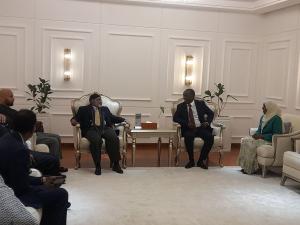
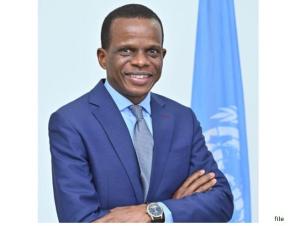
.jpg)
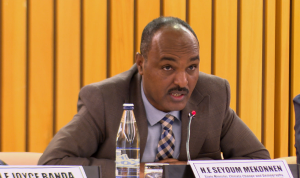
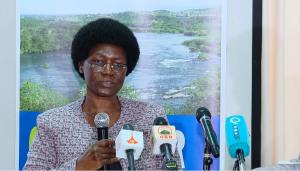




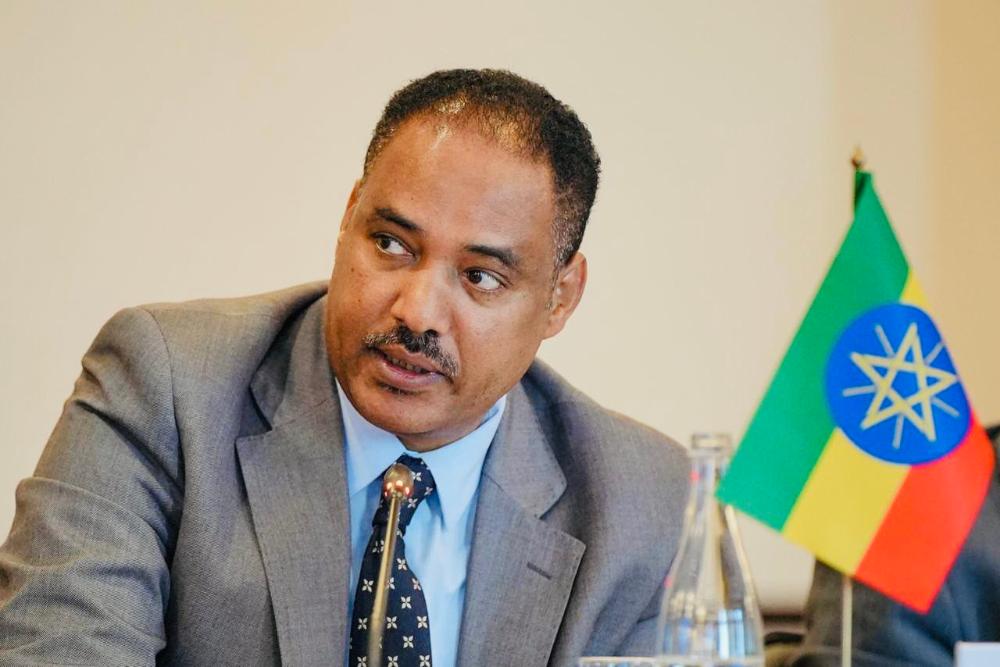

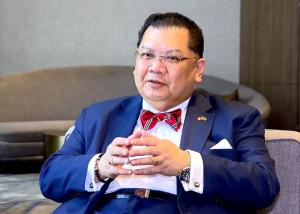

.jpg)
.jpg)
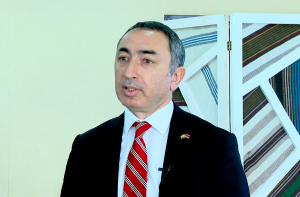
.jpg)
.png)

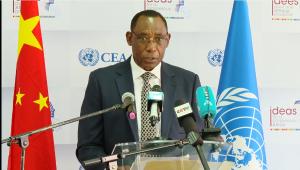
.jpg)

.jpg)
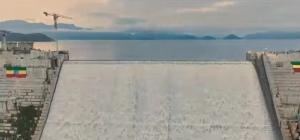
.jpg)
.jpg)
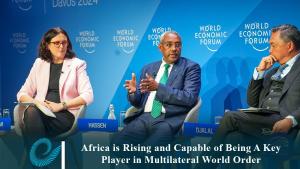


.jpg)



.jpg)

.jpg)
.jpg)

